I can’t stop making this easy homemade peanut butter recipe. It’s so much tastier than store-bought. I show you how to make creamy or crunchy peanut butter, plus two more delicious variations.
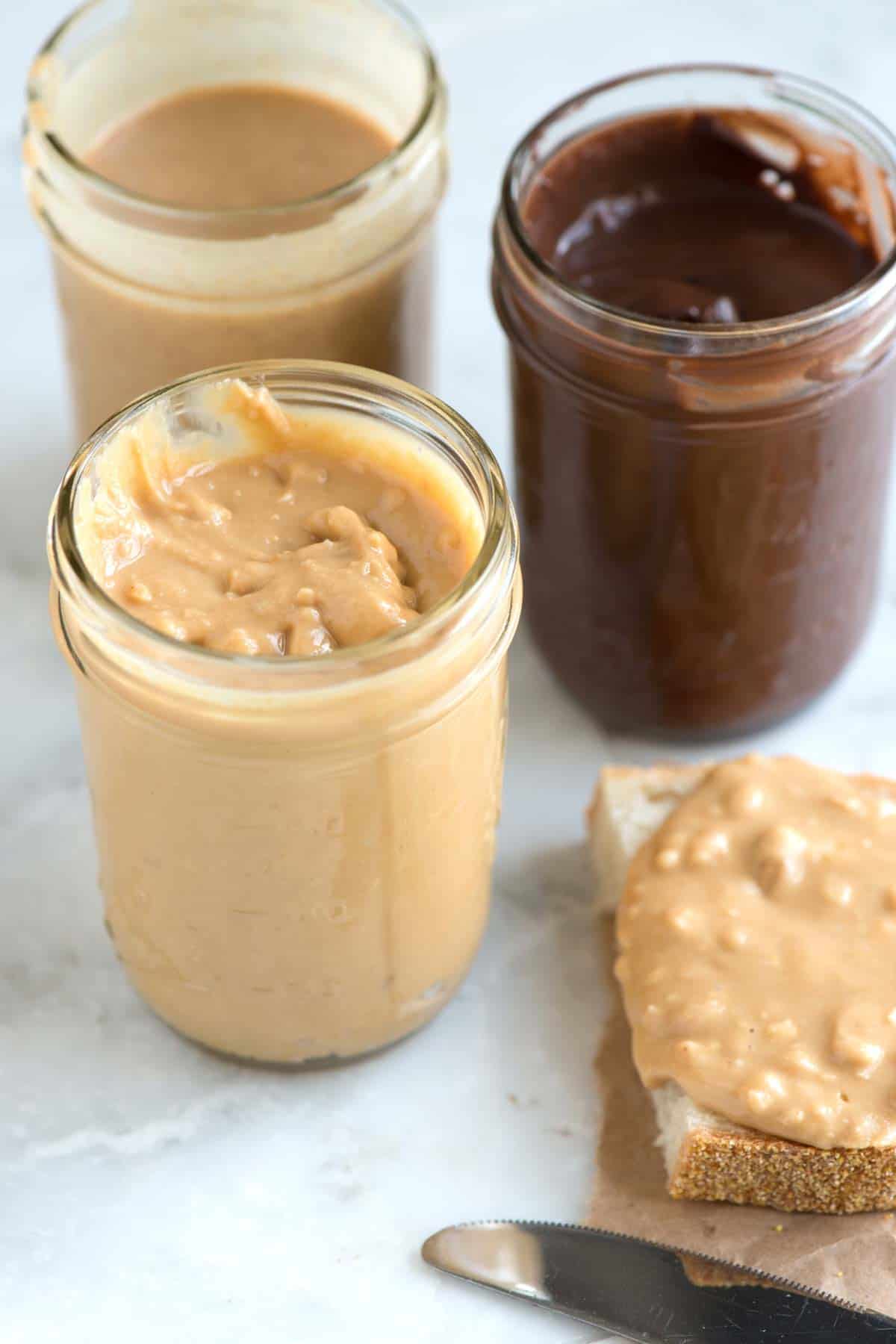
We go through a lot of peanut butter in our house (so much so that we were determined to start making it ourselves). Homemade peanut butter is easy and allows you to adapt it to make it your own. The same is true for homemade almond butter and this delicious cashew butter.
I’m camp crunchy when it comes to peanut butter, but I know many of you love it creamy, so my recipe below includes tips for making it crunchy or creamy. You’ll also find tips for making almond peanut butter and chocolate peanut butter (think Nutella, but with peanuts). As a side note, this makes an excellent peanut butter pie!
Key Ingredients
- Peanuts: I use unsalted peanuts when making peanut butter so that I can salt to taste. Any peanut variety will work, but for the best peanut butter, look for Spanish or Valencia peanuts, which are a bit oilier and more flavorful.
- Salt: I use sea salt for this recipe. It’s optional, but salt does make peanut butter taste better.
- Sweetener: I always add a little bit of maple syrup or honey when making peanut butter. I don’t like sweet nut butter, but I love the flavor a teaspoon or so adds.
- Oil: This is optional, but if your peanut butter is too thick, add a teaspoon or two of light-flavored oil (like avocado or peanut oil).
How to Make Homemade Peanut Butter
You can make our peanut butter recipe in under 15 minutes. The most time-consuming part of this easy recipe is roasting the peanuts, which takes about 10 minutes (and I highly recommend it). Roasting brings out the flavor of your peanuts.
I use my food processor to make peanut butter, but a high-powered blender will do the trick. Toss the roasted peanuts into the processor bowl, turn on, and watch as the peanuts transform.
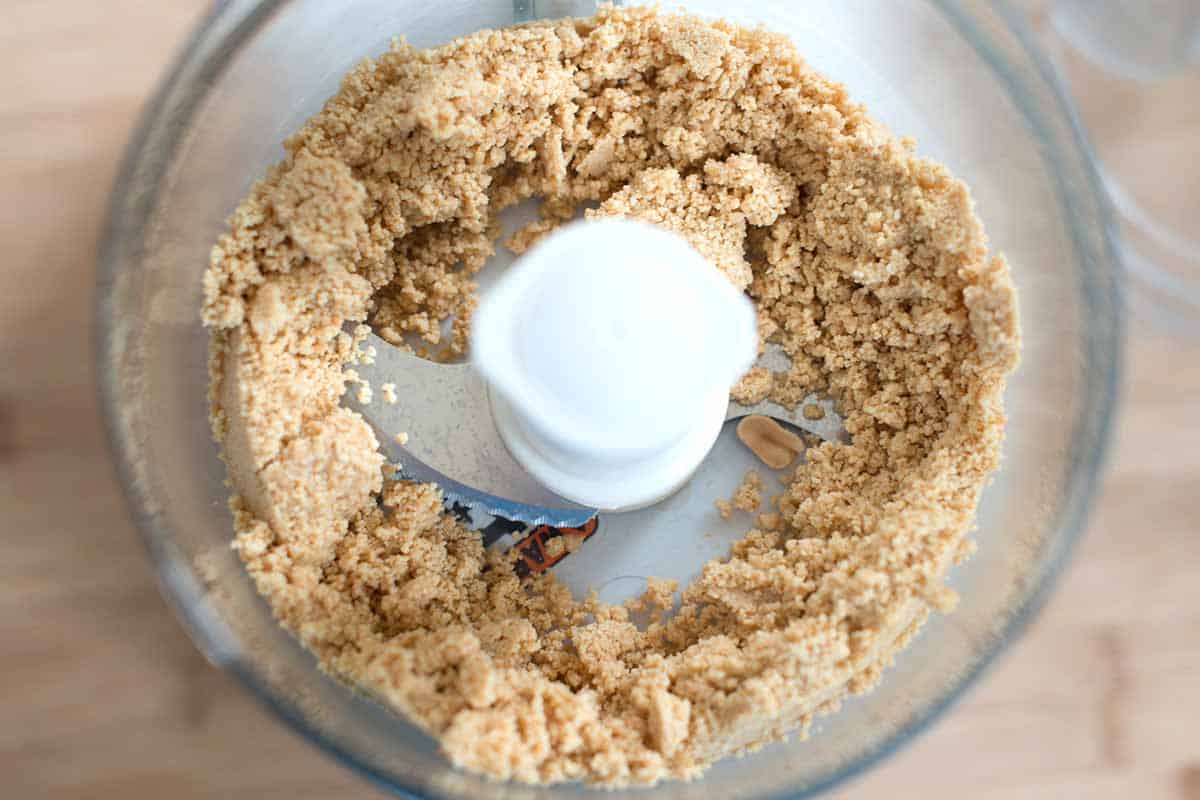
In the beginning, the peanuts look dry and very crumbly. So much so that you might even question if they will turn into anything resembling peanut butter, but they will (I promise).
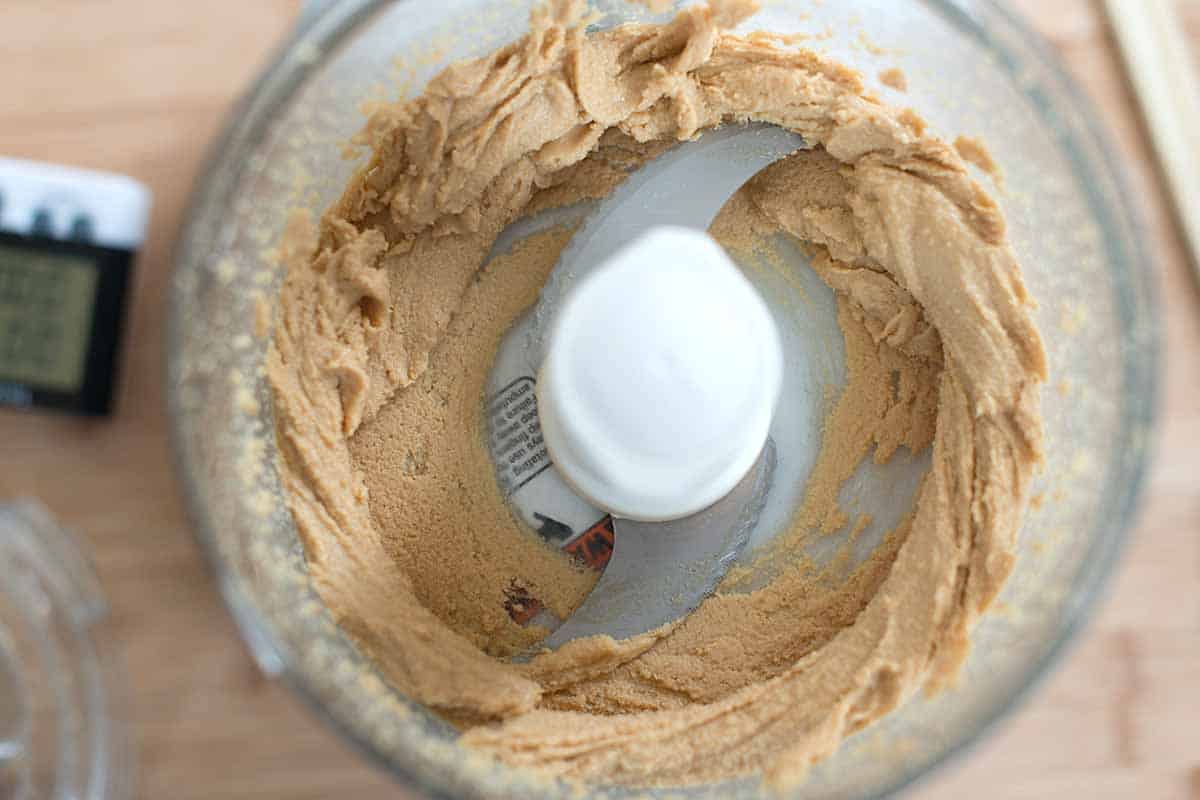
After a minute or two more, the dry, crumbly mixture will look more like a thick paste. Keep going, and you’ll see it give up and turn into a silky, smooth peanut butter. At this point, I love to sweeten the peanut butter with maple syrup (or honey) and add a pinch or two of salt.
Our family is all about crunchy peanut butter. So before blending the peanuts into peanut butter, I add a third cup of the roasted peanuts to the food processor and pulse into little bits. Then I save that to stir into my peanut butter later on.
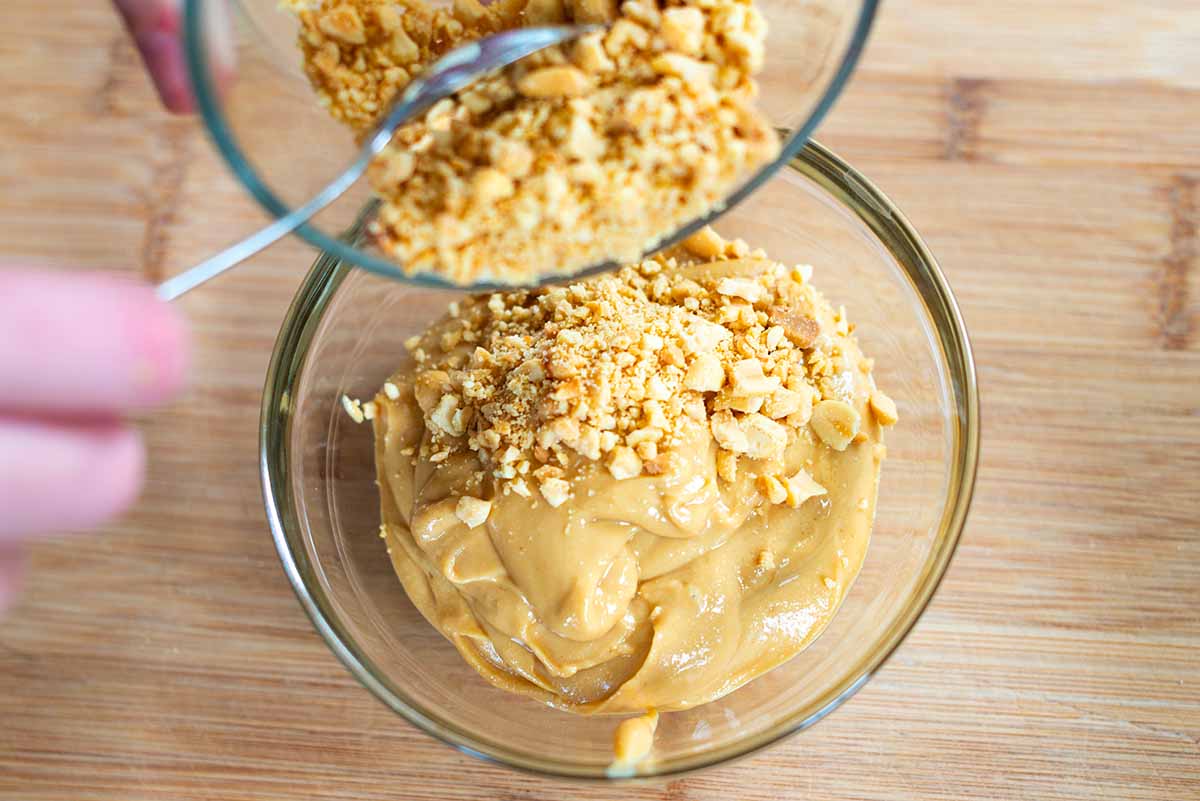
In addition to crunchy peanut butter, I have two more variations for you. The first is an almond peanut butter, which swaps half the peanuts in our recipe for almonds. The second is a chocolate peanut butter, which adds cocoa powder and powdered sugar to our original recipe. Instructions for both variations are below the recipe.
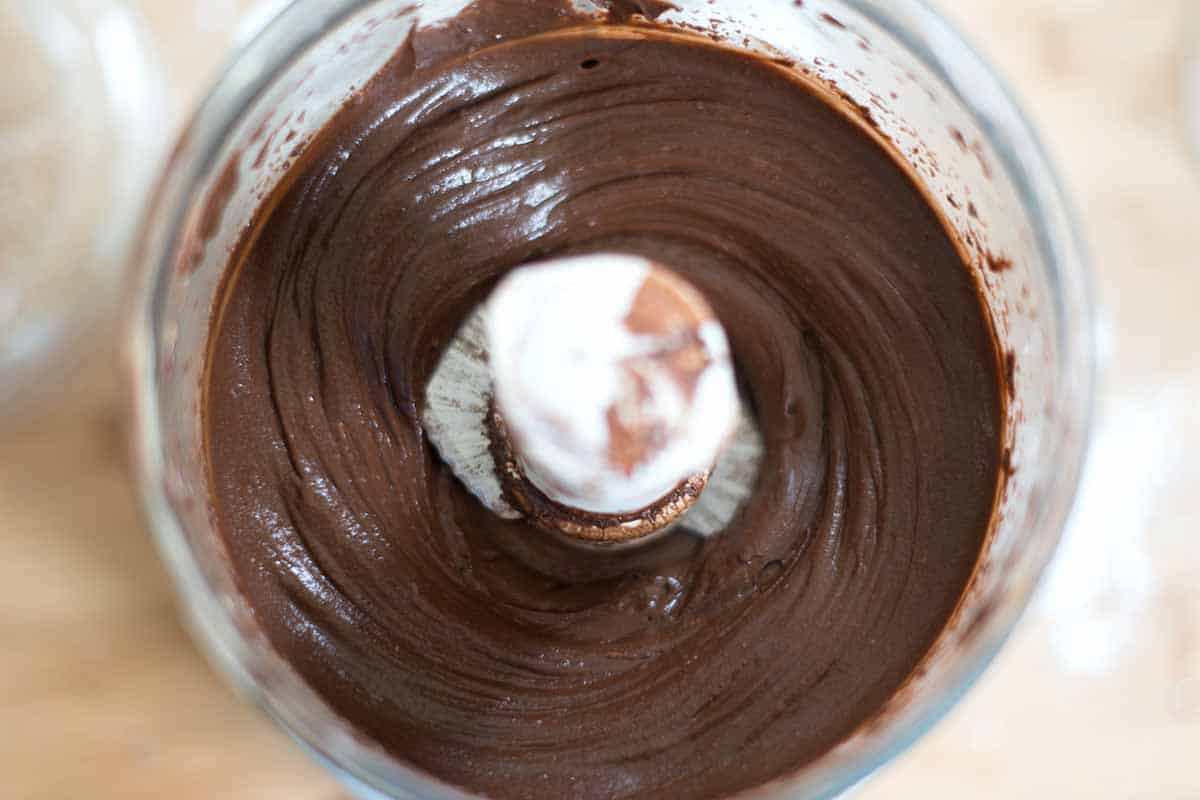
Ways to Use Homemade Peanut Butter
This peanut butter is absolutely amazing spread onto bread, homemade English muffins, or my favorite fluffy biscuits. I love a spoonful added to my morning oatmeal and use it to make these overnight oats.
I’ve also used it to make my peanut butter granola bars, these energy balls, and even my favorite peanut butter cookies!
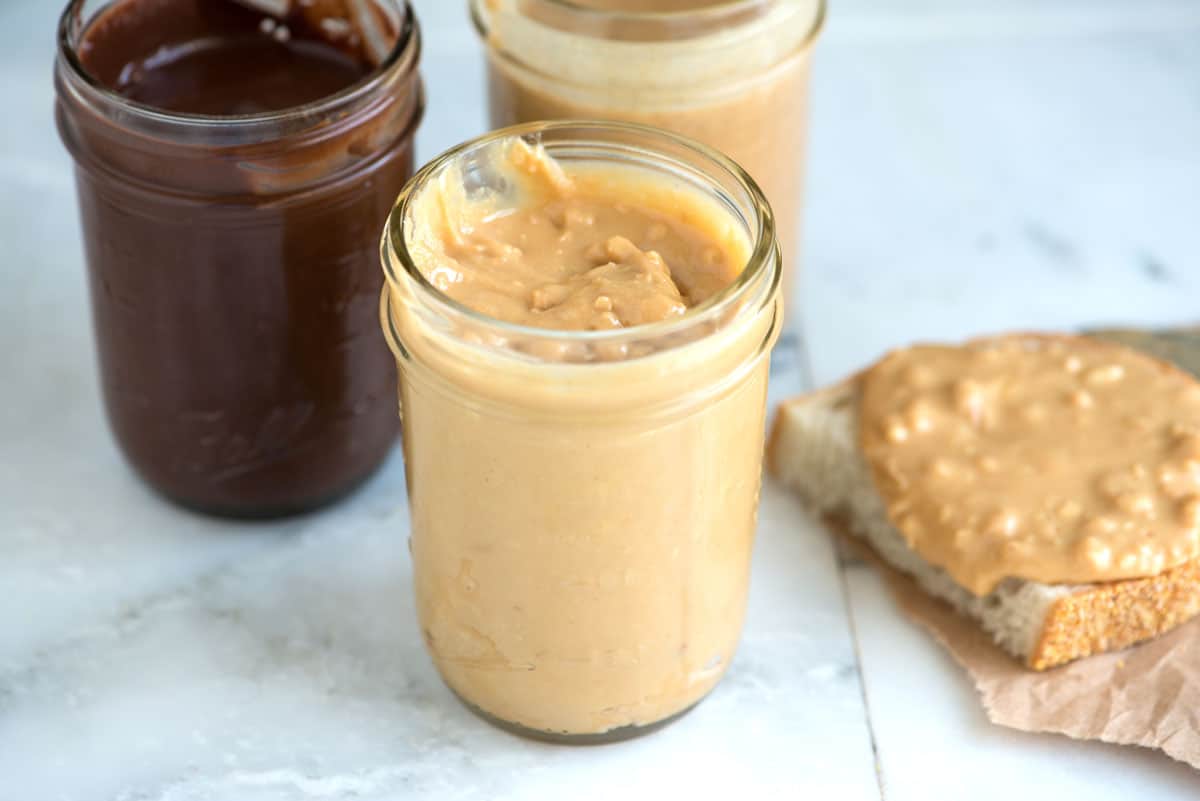
How to Make the Best Peanut Butter
- PREP
- COOK
- TOTAL
My homemade peanut butter recipe is so simple to make. All you need is a food processor or high-powered blender and 15 minutes. I always roast my peanuts before making homemade peanut butter (even if the package says roasted). A little time in the oven warms up all the oils in the nuts and brings them to life, making our peanut butter taste even better.
Oil is optional but does help if your nut butter is too thick. Any neutral oil will do the job. You should not need a lot, maybe a teaspoon or two.
Watch Us Make the Recipe
You Will Need
2 cups (300g) unsalted shelled peanuts
1/4 teaspoon fine sea salt, or more to taste
1 teaspoon maple syrup or honey, or more to taste
1 to 3 teaspoons peanut or vegetable oil, as needed
Directions
1Preheat the oven to 350°F (177°C). Add the peanuts to a round or square cake pan (or small-rimmed baking sheet).
2Roast the peanuts in the oven for 3 minutes, shake the pan, then roast another 3 to 5 minutes or until they are lightly browned and smell nutty (watch them to prevent over-browning). Let them cool until you can handle them.
3For crunchy peanut butter, add 1/3 cup of the roasted peanuts to the bowl of a food processor. Pulse 6 to 8 times or until the peanuts are chopped small. Transfer the chopped peanuts to a bowl and reserve for later.
4Add the roasted peanuts to a food processor bowl (save the chopped peanuts for adding later if you are making crunchy).
5Process the peanuts for 1 minute, then scrape the sides of the bowl with a rubber spatula. Process another 2 to 3 minutes until the peanut butter is shiny and smooth. The peanuts will go from crumbly and very dry to a clumpy mixture and finally to smooth and shiny.
6Add your desired amount of salt and maple syrup or honey, then process until combined. We add 1/4 to 1/2 teaspoon of salt.
7Check the consistency of your peanut butter. If it seems too thick, add oil, a teaspoon at a time, until you are happy with it.
8For crunchy peanut butter, stir in the reserved peanuts.
Adam and Joanne's Tips
- Almond peanut butter: Use 1 cup (150g) of unsalted shelled peanuts and 1 cup (150g) of unsalted whole almonds. Then, follow the recipe for basic peanut butter.
- Chocolate Peanut Butter: Use the basic peanut butter recipe, but increase the oil to 2 tablespoons and add 1/2 cup (45g) unsweetened cocoa powder and 1 cup (170g) powdered sugar. Process until smooth, taste, and then adjust with more sugar, up to 1/2 cup (85g) more. If it is too thick, add more oil, a teaspoon at a time, until you are happy with the consistency.
- Vegan peanut butter: Use maple syrup instead of honey to sweeten the peanut butter.
- Storing: Transfer the peanut butter to a food-safe container or jar, cover it, and store it in the refrigerator for up to 1 month. If the peanut butter separates, use a spoon to stir it until it is well blended.
- Using a blender: As long as you have a high-powered blender, you can make peanut butter in a blender. The steps will be the same as with a food processor.
- Nutrition facts: The facts provided below are estimates for the basic recipe. We have used the USDA database to calculate approximate values.
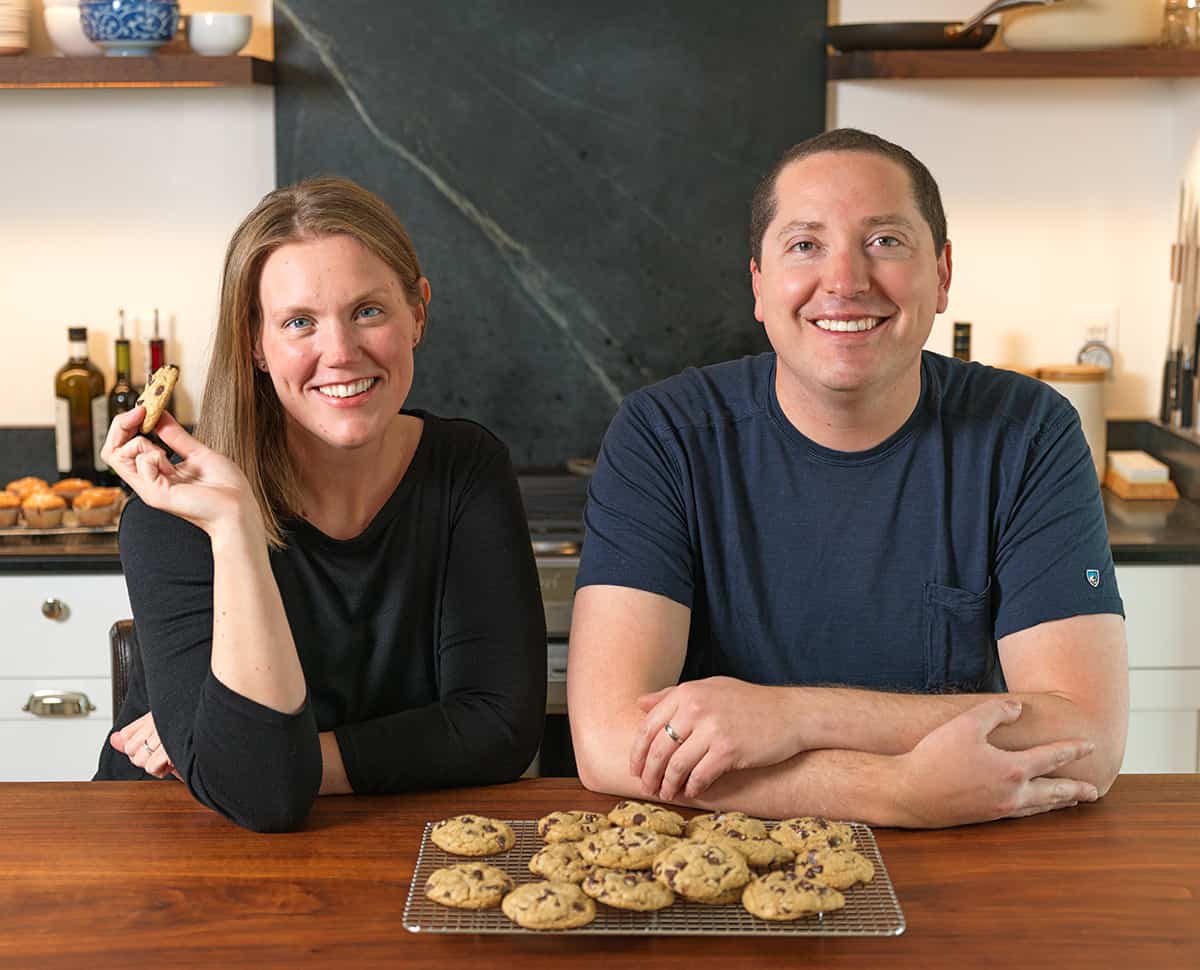
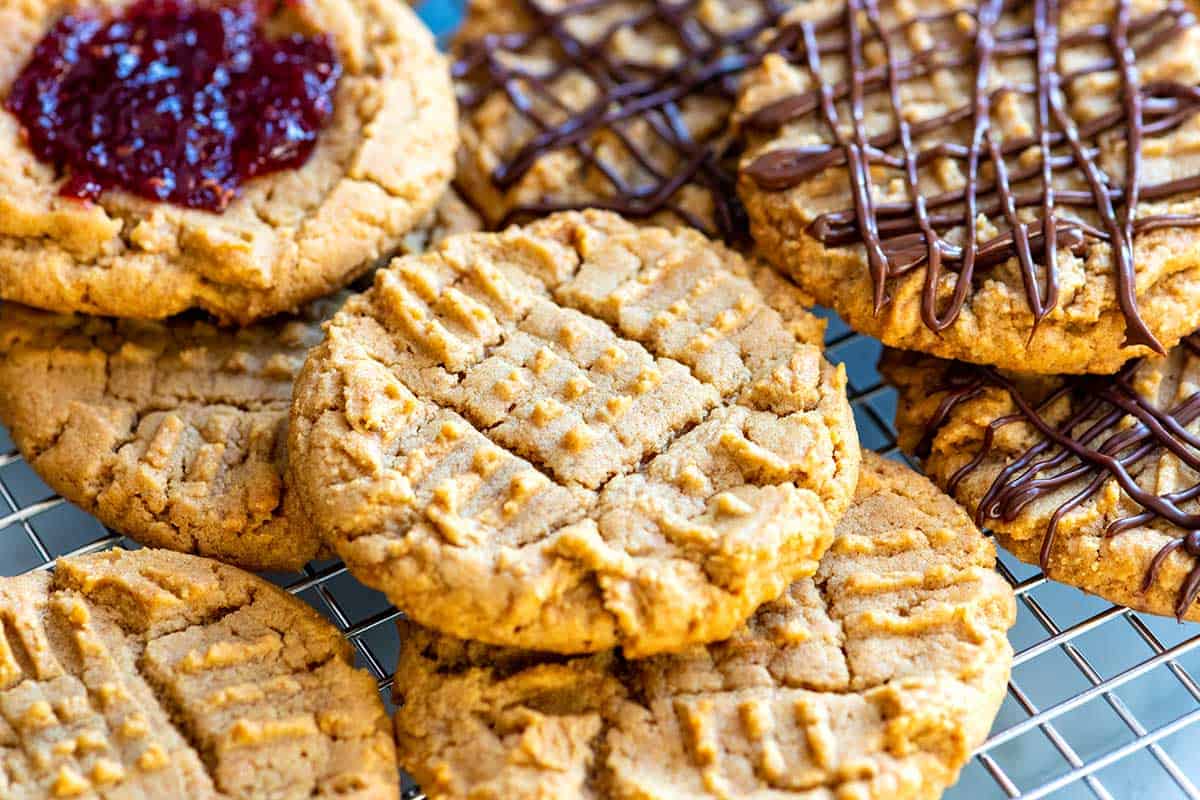
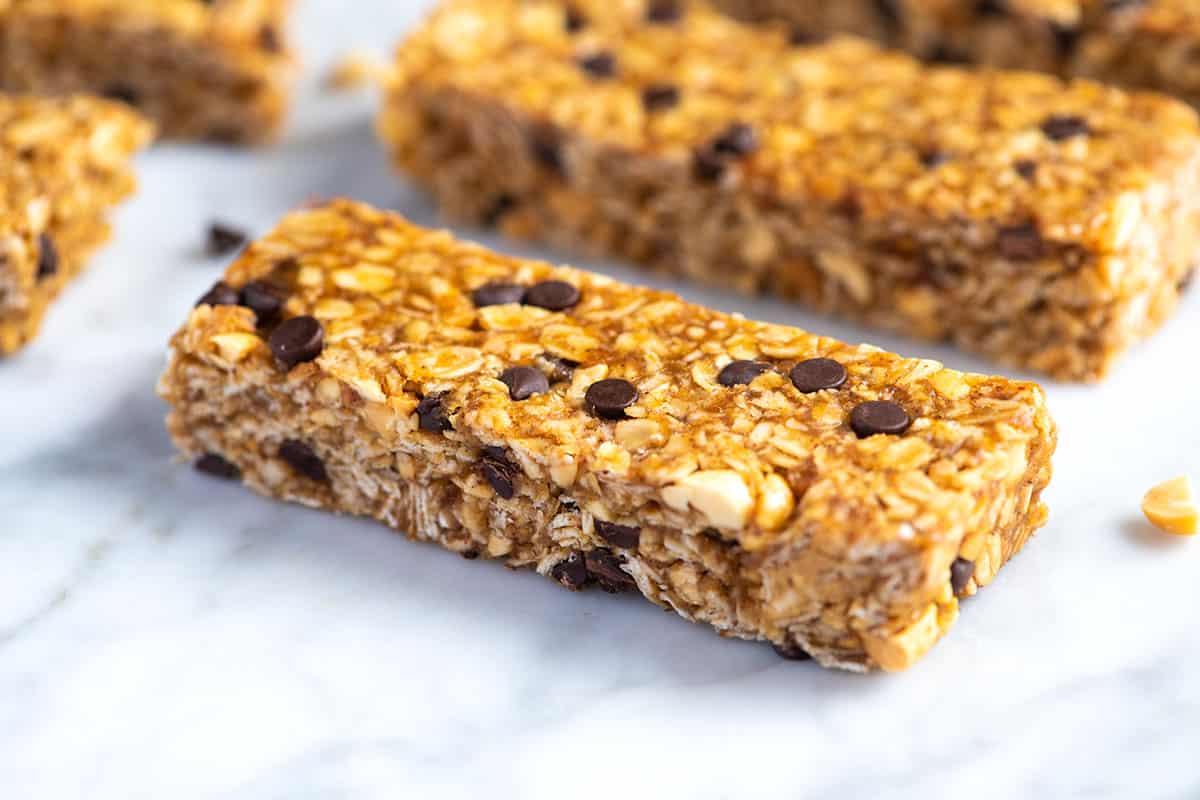
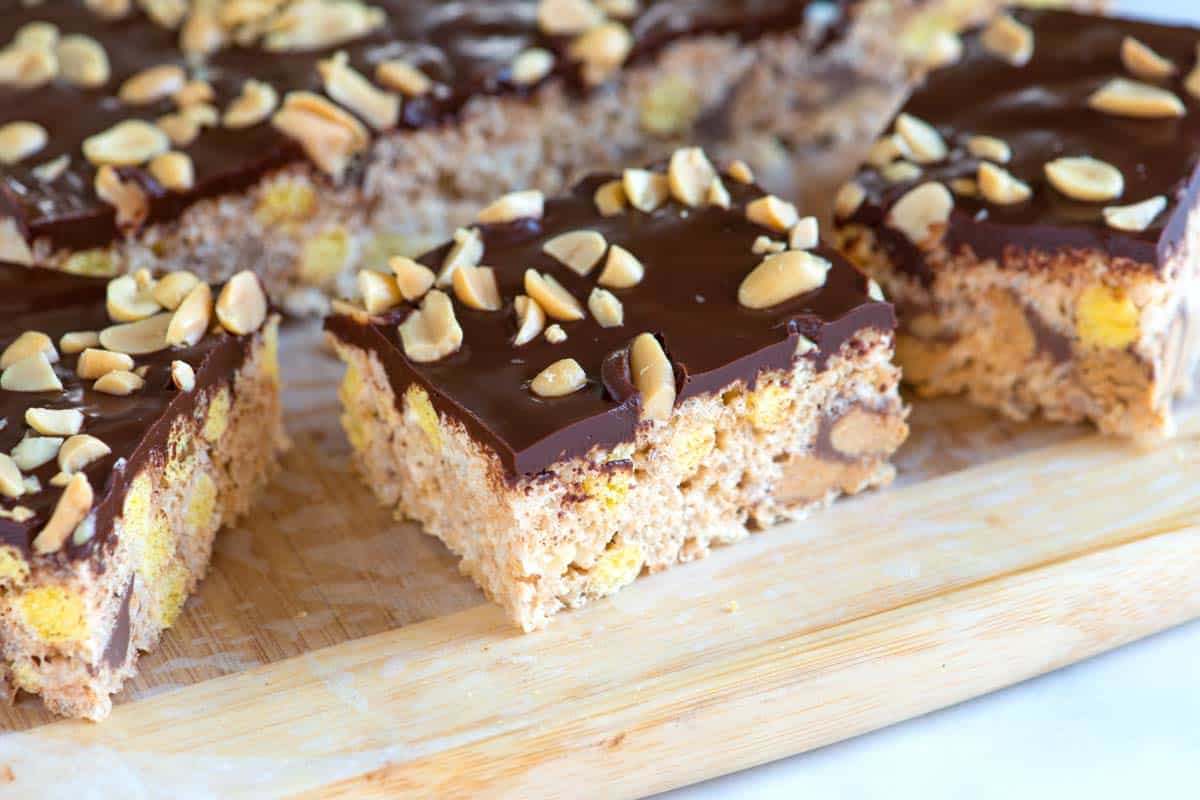
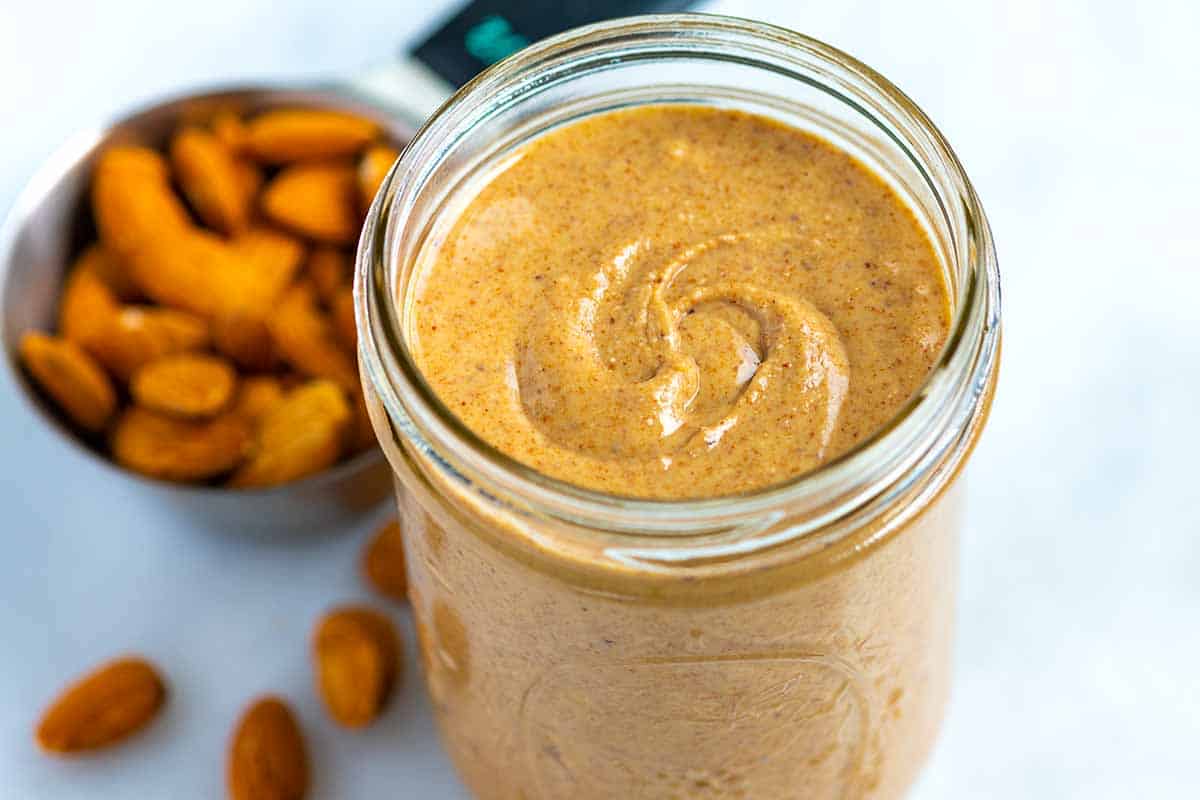
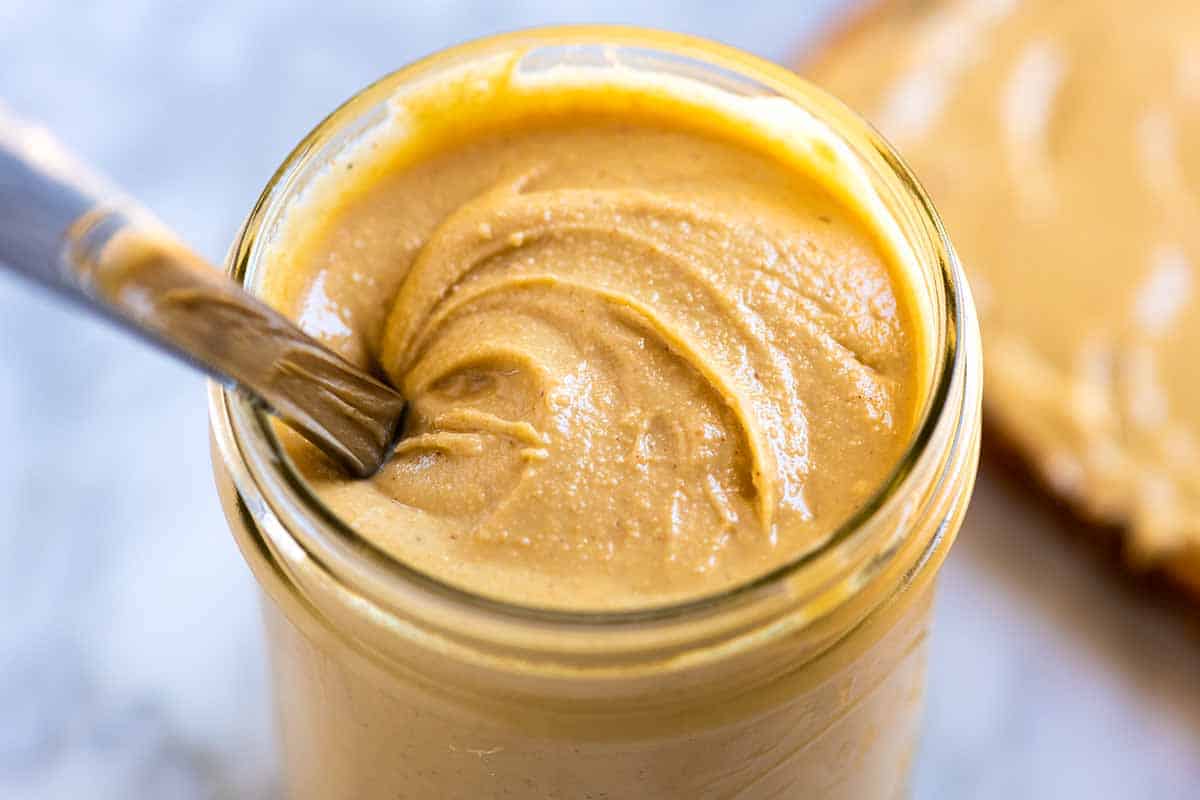
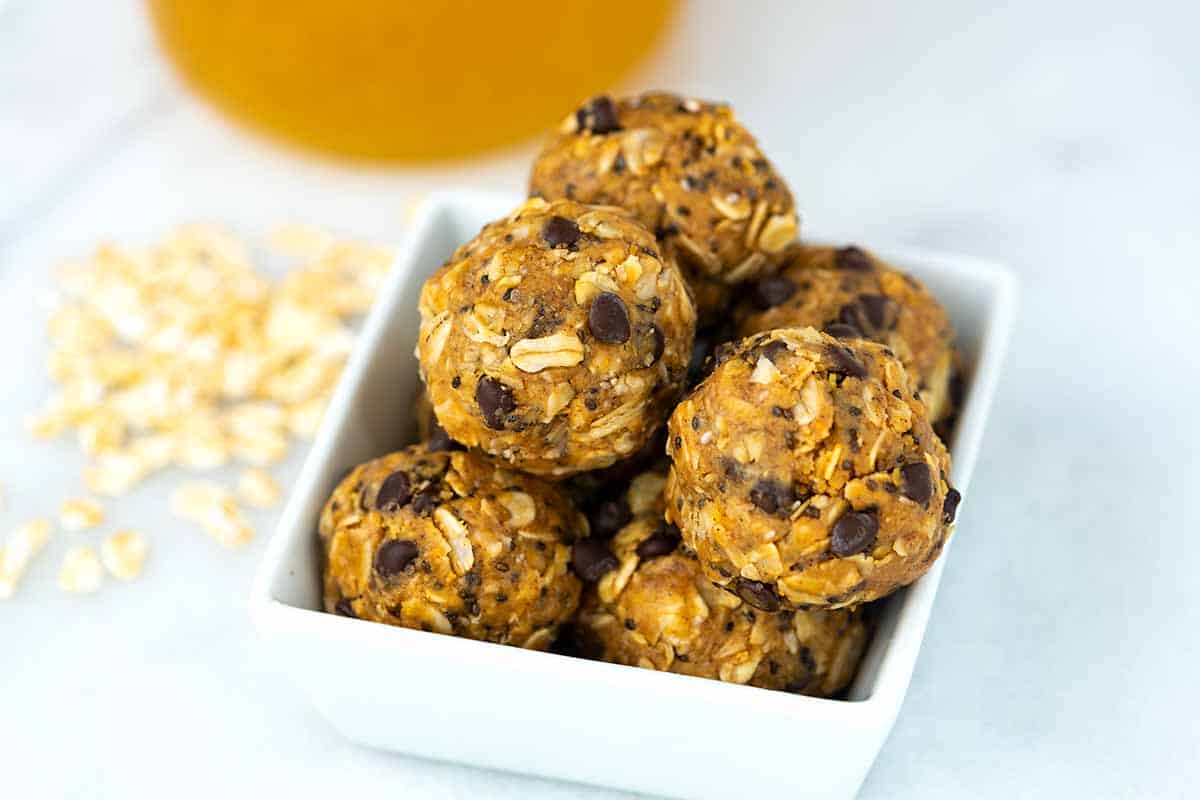


I made this PB today, smooth version. Daughter is allergic to nuts, milk and sesame so I washed my nuts and dried them to remove any traces of these allergens before I re-roasted them for 5 minutes. I can’t believe how creamy it tastes without extra oil! I used 2 packs of 200g nuts with the recommended salt and honey and put into the fridge as suggested. Amazing. Yum! Thank you 🙏 🤗
Peanut butter is something I can’t resist, so even though I lack the skills to do ANYTHING in the kitchen, I took the plunge and tried it out. It was so easy to make and I totally enjoyed it. Thanks.
Wow! Super easy and tastes sooo delicious!! Thank you Wow!
This is so much good with simple process after been explained, much appreciated.